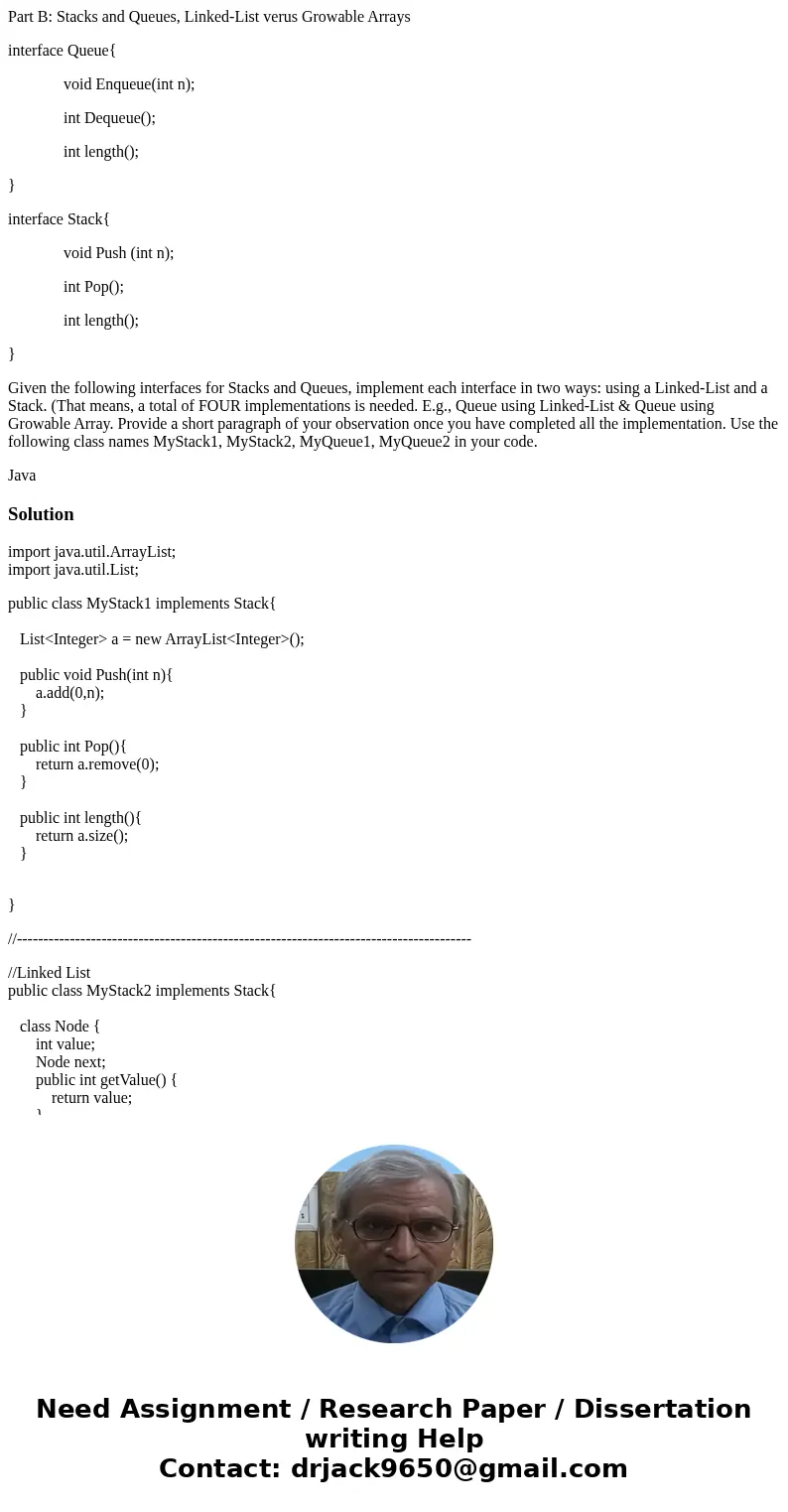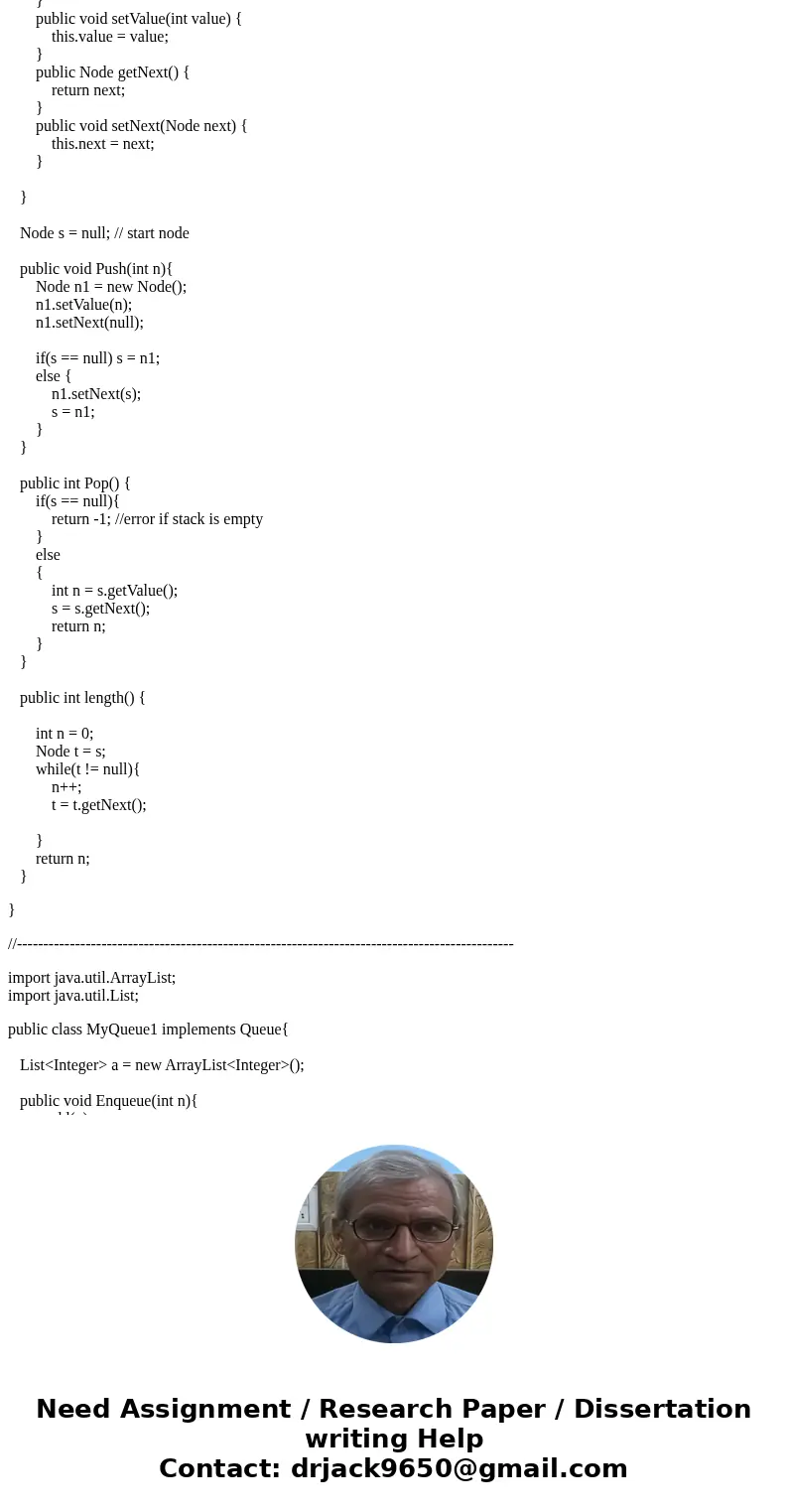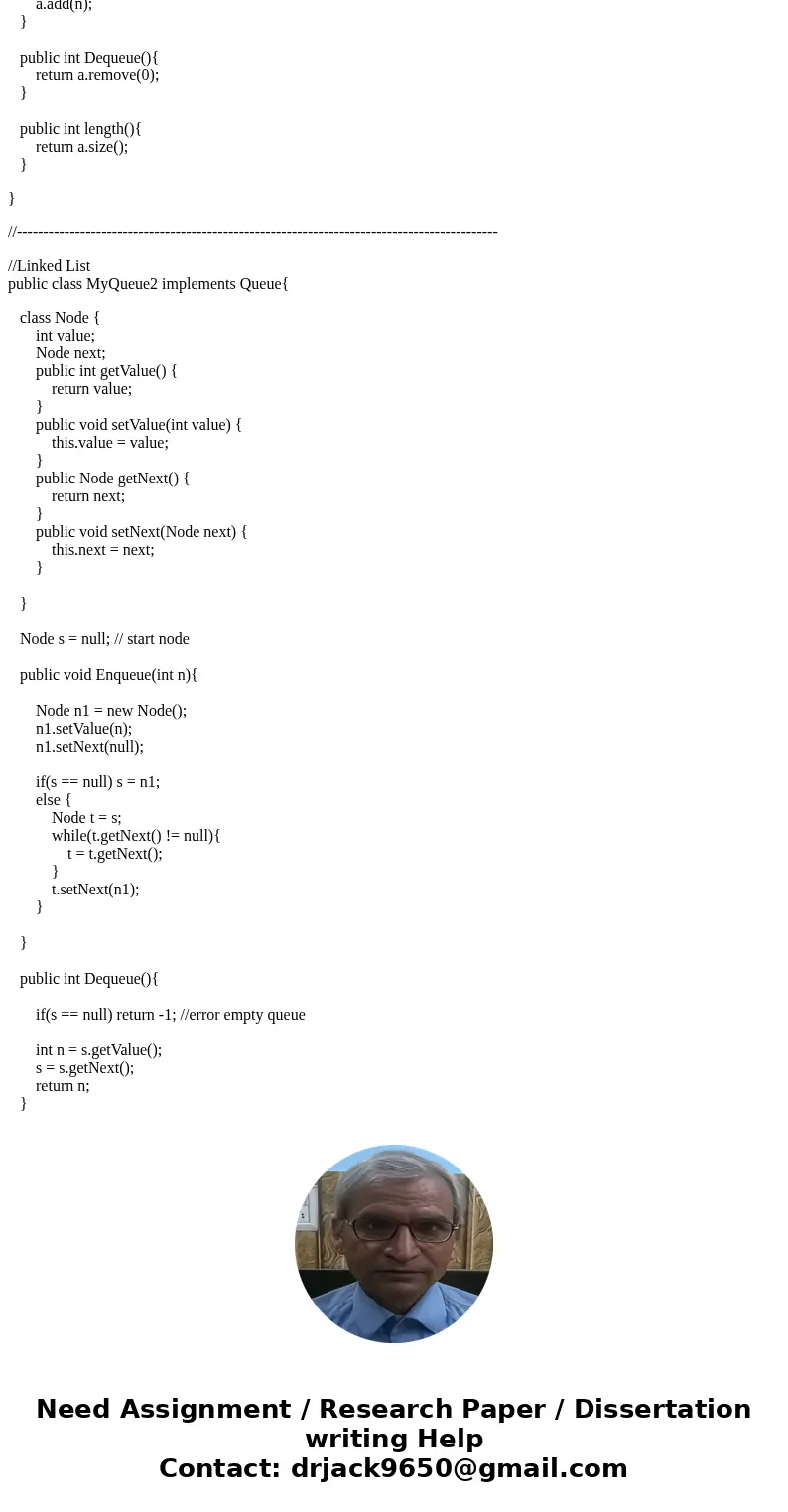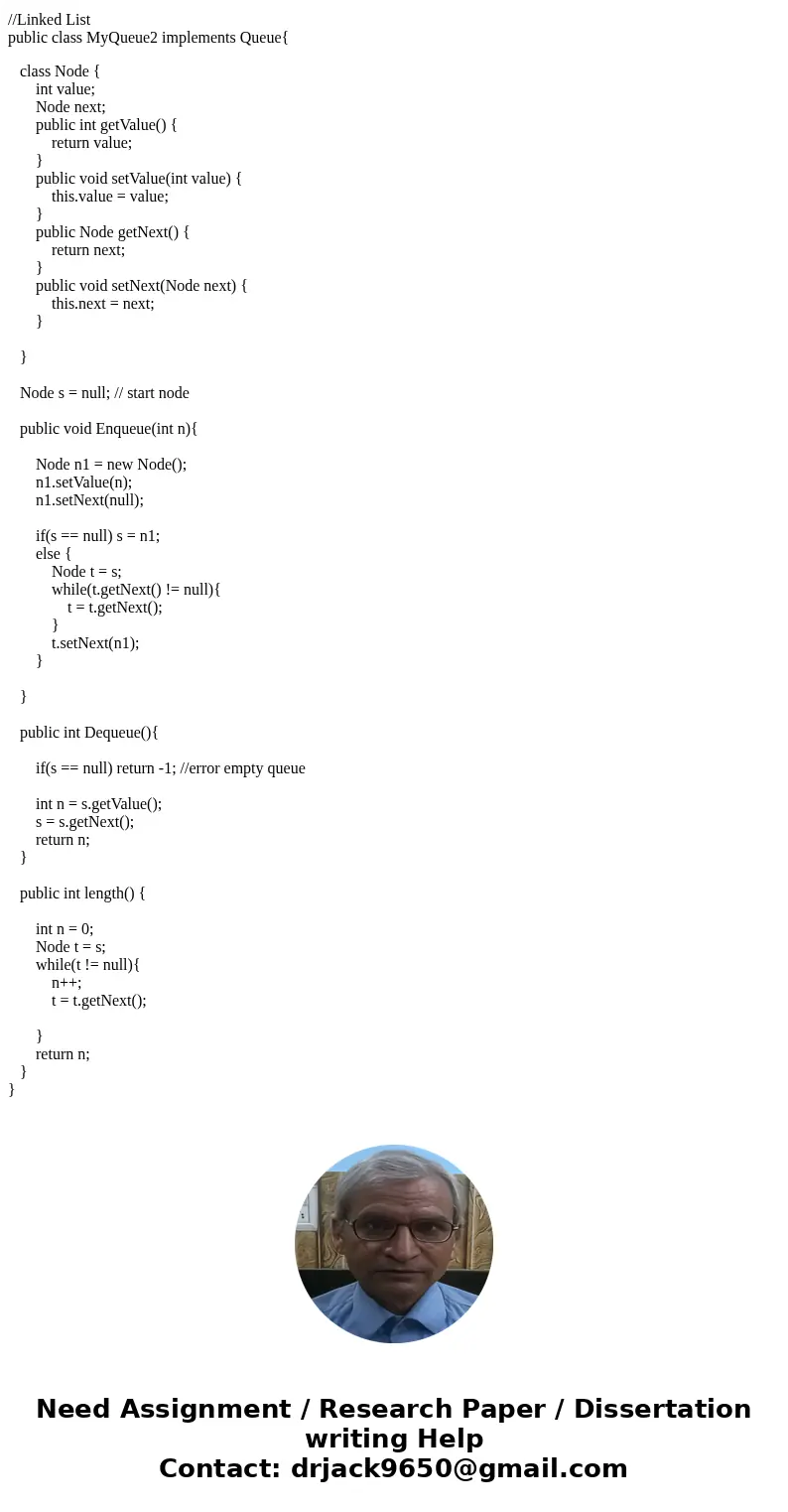Part B Stacks and Queues LinkedList verus Growable Arrays in
Part B: Stacks and Queues, Linked-List verus Growable Arrays
interface Queue{
void Enqueue(int n);
int Dequeue();
int length();
}
interface Stack{
void Push (int n);
int Pop();
int length();
}
Given the following interfaces for Stacks and Queues, implement each interface in two ways: using a Linked-List and a Stack. (That means, a total of FOUR implementations is needed. E.g., Queue using Linked-List & Queue using Growable Array. Provide a short paragraph of your observation once you have completed all the implementation. Use the following class names MyStack1, MyStack2, MyQueue1, MyQueue2 in your code.
Java
Solution
import java.util.ArrayList;
import java.util.List;
public class MyStack1 implements Stack{
List<Integer> a = new ArrayList<Integer>();
public void Push(int n){
a.add(0,n);
}
public int Pop(){
return a.remove(0);
}
public int length(){
return a.size();
}
}
//--------------------------------------------------------------------------------------
//Linked List
public class MyStack2 implements Stack{
class Node {
int value;
Node next;
public int getValue() {
return value;
}
public void setValue(int value) {
this.value = value;
}
public Node getNext() {
return next;
}
public void setNext(Node next) {
this.next = next;
}
}
Node s = null; // start node
public void Push(int n){
Node n1 = new Node();
n1.setValue(n);
n1.setNext(null);
if(s == null) s = n1;
else {
n1.setNext(s);
s = n1;
}
}
public int Pop() {
if(s == null){
return -1; //error if stack is empty
}
else
{
int n = s.getValue();
s = s.getNext();
return n;
}
}
public int length() {
int n = 0;
Node t = s;
while(t != null){
n++;
t = t.getNext();
}
return n;
}
}
//----------------------------------------------------------------------------------------------
import java.util.ArrayList;
import java.util.List;
public class MyQueue1 implements Queue{
List<Integer> a = new ArrayList<Integer>();
public void Enqueue(int n){
a.add(n);
}
public int Dequeue(){
return a.remove(0);
}
public int length(){
return a.size();
}
}
//-------------------------------------------------------------------------------------------
//Linked List
public class MyQueue2 implements Queue{
class Node {
int value;
Node next;
public int getValue() {
return value;
}
public void setValue(int value) {
this.value = value;
}
public Node getNext() {
return next;
}
public void setNext(Node next) {
this.next = next;
}
}
Node s = null; // start node
public void Enqueue(int n){
Node n1 = new Node();
n1.setValue(n);
n1.setNext(null);
if(s == null) s = n1;
else {
Node t = s;
while(t.getNext() != null){
t = t.getNext();
}
t.setNext(n1);
}
}
public int Dequeue(){
if(s == null) return -1; //error empty queue
int n = s.getValue();
s = s.getNext();
return n;
}
public int length() {
int n = 0;
Node t = s;
while(t != null){
n++;
t = t.getNext();
}
return n;
}
}




 Homework Sourse
Homework Sourse